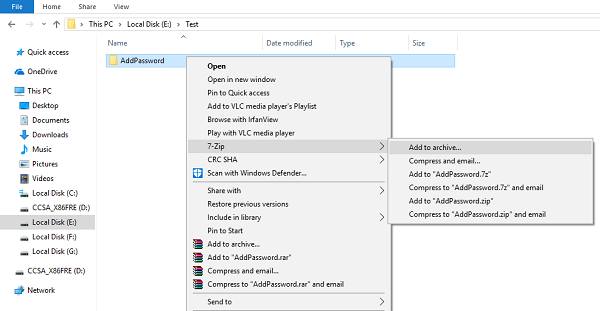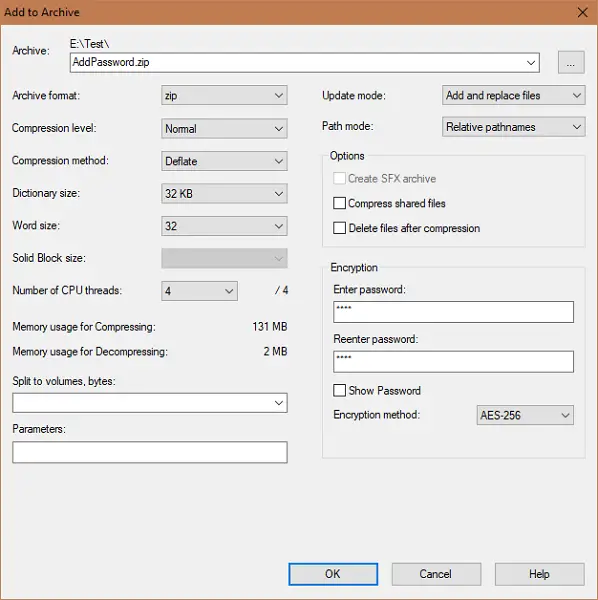We all use archive file formats like .zip, .rar in order to employ lossless data compression. In a single archive file, we can add several files and folders and considerably reduce the combined size of the package, which makes it easy to send it across the network. However, sometimes you don’t want to make the file access public before uploading or sending it across the network or inviting a wider audience. Adding a password to the zipped file in Windows 11/10/8/7 can save you all the trouble at such distressing times. In this post, we’ll be talking about how to add a password to a zipped or archived file.
How to add Password to Zip file
For starters, let us give a bit of backdrop to the various encryption and password protection methods that are supported by .zip files. First is
First is ZipCrypto which is widely used and supported by several ZIP archive software. However, it lacks on the security forefront. Word is out that it is quite weak and vulnerable to attacks like the known plain text attack. An efficient and more secure alternative to this is
An efficient and more secure alternative to this is AES-256 encryption which is considered among the top ciphers. Even so, AES-256 comes with its own set of drawbacks. Windows’ own native compression tool does not support it but many other well-known tools like 7-Zip, WinZip, WinRAR, etc. do support this.
So, ZipCrypto is compatible with several tools but not secure, whereas AES-256 is more secure but compatible with very less number of tools.
Encrypt compressed files using 7-Zip
WinZip & WinRAR are not free, and so we will show you how you can add a password to your compressed and archived files using 7-Zip which is open source and free.
Once you have downloaded and installed 7-Zip file archiver software from its official website and install it on your computer, right-click on the file or folder you wish to compress and password-protect.

From the context menu, select 7-Zip > Add to archive.
Up next, enter your password and confirm it in the Encryption section, present in the lower-right corner. Here, it also allows you to select the encryption method (ZipCrypto or AES-256). Apart from this, you can also change the archive format (default is set to 7z which is the native file format for 7-Zip).

Once done, click OK to create the compressed file with the password that you’ve set.
Adding a password to a compressed file is quite easy, but the practical implementation of these algorithms always result in one or other weak spot.
Hence, it is advised to use secure passwords and keep the compressed file name unveiling so as not to give away any idea of the inside content.
TIP: ZipLock lets you Compress, Backup and Password-protect ZIP files
That’s it, fellas! I hope it helps!
Some of you might want to take a look at these Free File Encryption Software.
Leave a Reply